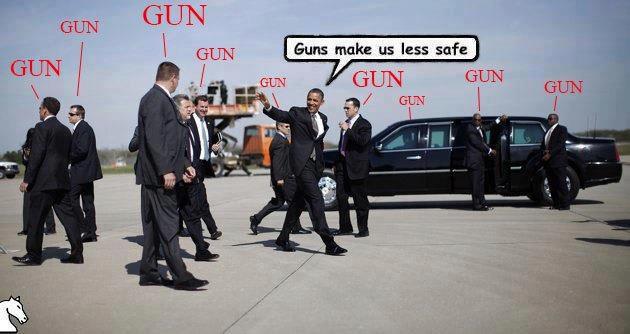Wish we could have arms in the UK. Wish we could defend ourselves, our homes, but we can't.
Moreover, we were all actually obliged by law to keep weapons at home so that we could help the authorities in the fight against crime.
The English Bill of Rights of 1689 - on which its American equivalent was modelled 100 years later - enshrines the right of subjects to have arms for their defence. Sir William Blackstone's great summary of English law, the 'Commentaries' of 1765, also affirms the English people's 'right of having arms for their defence'.
Attempts to limit gun ownership in this country are very recent indeed. As late as 1909, when the police came under fire from a foreign anarchist gang in Tottenham, North London, they borrowed guns from the citizenry and appealed to members of the public to help them shoot back at the gang leaders.
And readers of the Sherlock Holmes stories, set around the same time, will have noticed that he and his assistant Dr Watson frequently go out on their expeditions armed with at least one revolver. The gun laws of Victorian England make modern-day Texas look effeminate.
Yet, though these stories are still widely read, almost nobody stops to wonder why what was legal in peaceful, well-ordered Edwardian London should be so illegal now. How and why is it that this freedom has been so abruptly and totally withdrawn?
One thing is for certain. It is not because tighter gun laws mean less gun crime. The more fiercely we have restricted private gun ownership in this country over the past century, the more armed crime there has been and the more the police have had to strap on holsters.
What should we learn from this? First, that criminals feel safer and more powerful when they know they are not likely to face any armed resistance.
That was certainly the view of Sammy 'The Bull' Gravano, an American Mafia turncoat who told Vanity Fair in 1999: 'Gun control? It's the best thing you can do for crooks and gangsters. I want you to have nothing. If I'm a bad guy, I'm always going to have a gun.'
His view has been backed up by American author John Lott, who found that many types of crime fell sharply in districts where law-abiding citizens were allowed to carry concealed weapons.
This was especially helpful to women, because the chance that they might have a gun in their handbags transformed them from being easy victims to tough propositions.
This practical form of sex equality is one of the things that does not compute in the world of the politically correct. Whoever heard of a British feminist with a gun? Can you imagine Germaine Greer keeping a revolver in her bedside table? Even so, what Lott says is undeniably true.








